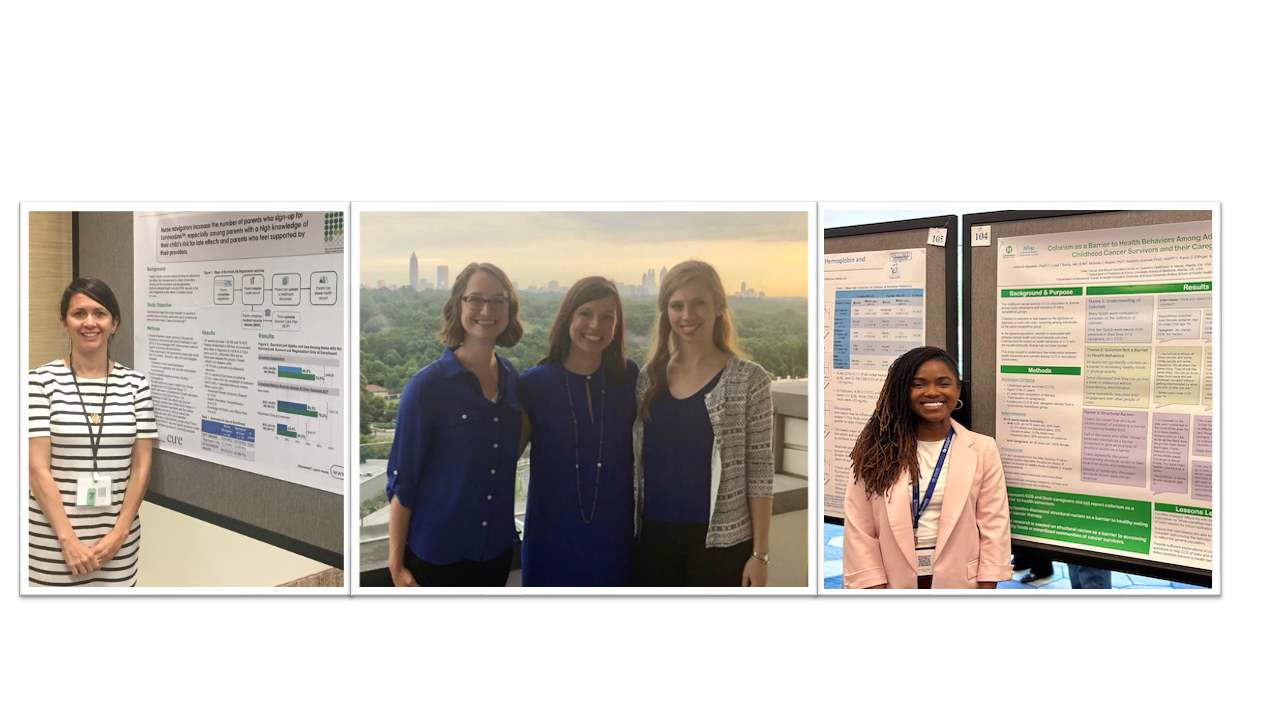Overview

Dr. Marchak is an Associate Professor in the Department of Pediatrics at Emory University School of Medicine and a behavioral scientist at Aflac Cancer & Blood Disorders Center at Children’s Healthcare of Atlanta. She has built a clinical research program focusing on healthcare self-management, healthy lifestyle behaviors, and psychosocial functioning. Her research also seeks to improve patients’ access to evidence-based supportive care programming by leveraging technology and implementation science methods.
In addition to her work with the Aflac Cancer & Blood Disorders Center, her national and international involvement includes:
- Cancer Prevention and Control Research Program at the Winship Cancer Institute
- Co-chair of the Mental Health working groups for the International Late Effects of Childhood Cancer Guideline Harmonization Group (IGHG)
- Childhood Cancer Survivor Study (CCSS) Psychology Steering Committee
- Children’s Oncology Group’s Behavioral Science, Outcomes & Survivorship, Cancer Care Delivery Research, and Supportive Care Committees
Current Projects
Electronic Psychosocial Screening in Pediatric Oncology
Despite well-documented risks and evidence-based guideline recommendations, most pediatric oncology sites do not have programming to provide evidence-based distress screening. Dr. Marchak's team has developed a systematic screening program that uses technological solutions integrated with the electronic health record (EHR) to promote evidence-based psychosocial assessment within pediatric oncology. The e-screening program launched in September 2018 and has been able to administer, document, and communicate the results of over 40,000 Pediatric Distress Thermometers. The Dyadic Electronic STRESS Screening in Pediatric Oncology (DE-STRESSS) study (PI: Marchak) used EHR reporting tools to characterize the reach and fidelity of electronic distress screening among N>3800 patients aged 2.0-21.9 years presenting at point of care in outpatient oncology clinics. Overall, results indicate that leveraging EHR technology can successfully and equitably reach pediatric oncology patients for psychosocial screening and effectively link patients to timely mental health supports.
Dr. Marchak is currently leading “Supporting Electronic Evaluation of Symptoms for Anxiety and Depression After Childhood Cancer Treatment” (SEE-SAD-ACT) an implementation study to leverage EHR technology to implement evidence-based screening for depression and anxiety among pediatric cancer survivors using the PROMIS® (Patient-Reported Outcomes Measurement Information System) measures during survivorship appointments (Pfizer-PROTEUS Consortium Award; PI: Marchak).
Evaluating Educational Tools to Support Pediatric Cancer Survivor Care Across the Lifespan
Dr. Marchak and her team are working to facilitate survivors’ engagement in care by using novel patient-centered technological educational tools.
Cancer SurvivorLink allows survivors to upload, store, and share key health documents related to their survivor care in an electronic personal health record (ePHR). SurvivorLink also has an educational section, which currently houses static educational resources (e.g. pdf files) for patients and providers.
Dr. Marchak is currently leading efforts to identify the optimal delivery of electronic educational media to increase knowledge about survivorship care plans and motivation for survivor care among young adult aged survivors (Evaluating Education Tools to Support Pediatric Cancer Survivor Care Across the Lifespan; NCT04257058; PI: Marchak). By developing effective AYA long-term follow-up educational materials, we will be able to optimize the content, format, and delivery of electronic educational media to increase knowledge about and motivation for long-term follow-up care among AYA survivors of childhood cancer.


